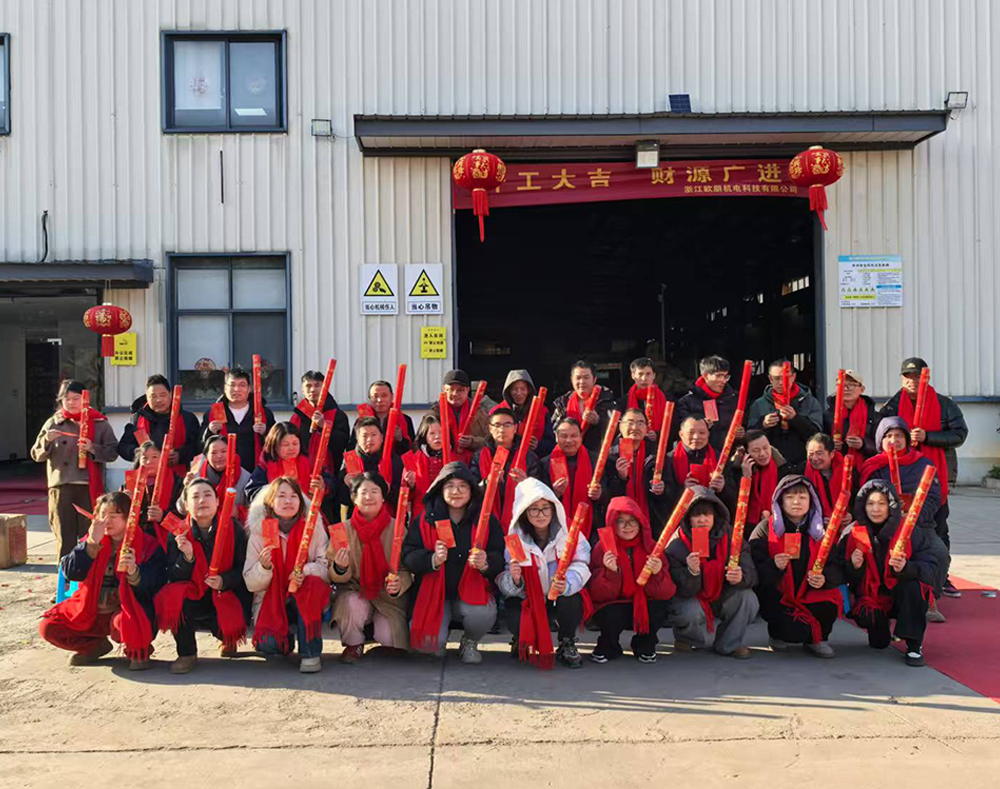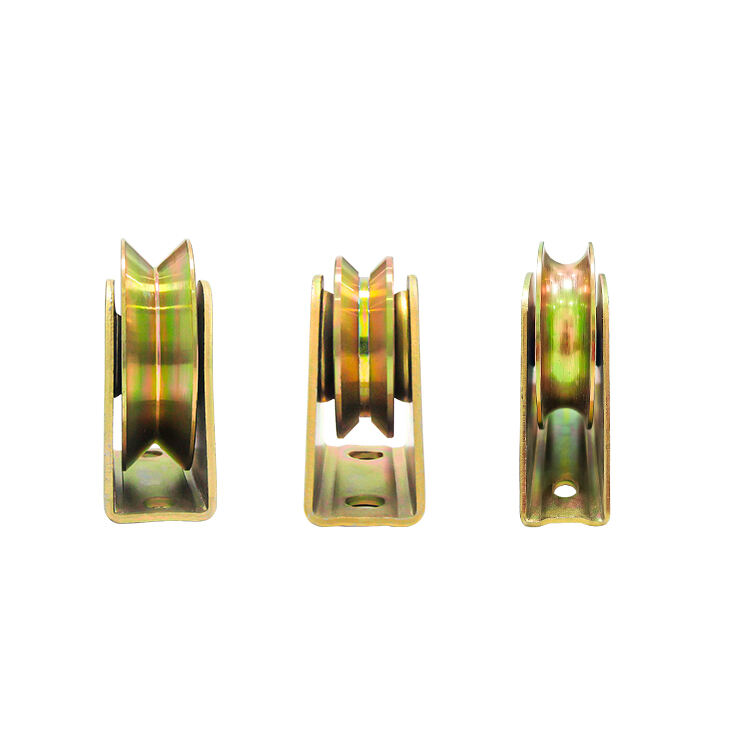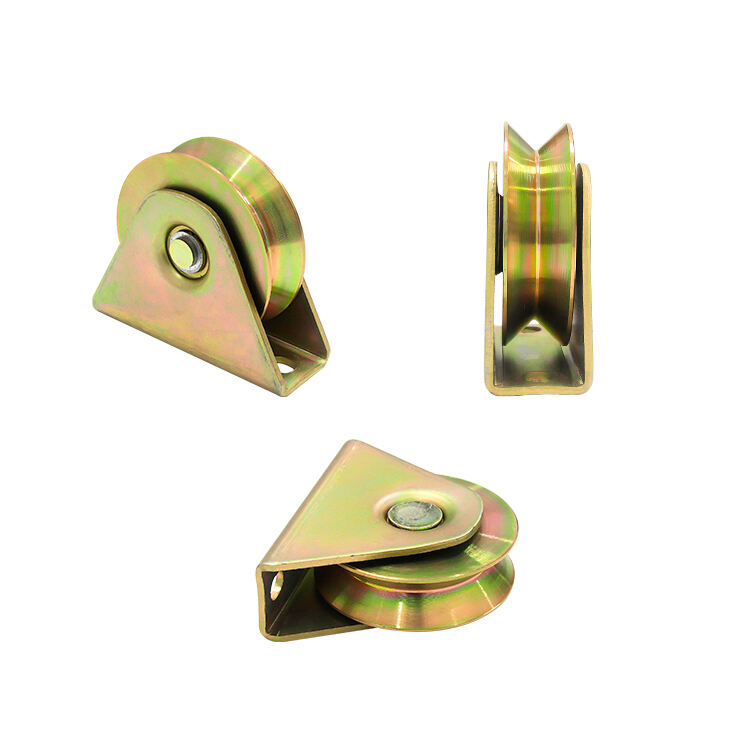Core Functions and Applications of Rollers in Manufacturing
Reducing Friction and Enhancing Material Flow
Rollers really cut down on friction which makes all sorts of manufacturing processes run better. When there's less resistance, everything moves along much smoother and materials just keep flowing without getting stuck. This matters a lot when dealing with heavy stuff that needs moving around the factory floor. Rollers make handling these big loads almost effortless compared to other methods, so nobody stands around waiting for things to move. Factories save money too because smoother operation means they use about 30% less energy overall. That kind of efficiency translates into real savings month after month. Most manufacturers have found that incorporating good quality roller systems into their workflow dramatically speeds things up while keeping production consistent day in and day out.
Heavy-Duty Applications: Mining and Logistics
For tough jobs in mining operations and large scale logistics, rollers need to survive brutal conditions without losing their function. These durable components must carry massive weights, resist getting clogged with dust particles, and keep working through rain or extreme heat common in mining sites. Conveyor belts rely heavily on these rollers across warehouses and distribution centers where they move products along efficiently. The automated movement cuts down on worker fatigue and speeds up how fast items get processed through facilities. Some logistics companies report around a 40% boost in output after switching to industrial grade rollers, according to recent market analysis from supply chain experts.
Precision in Electronics and Semiconductor Production
Demand for precision rollers keeps rising fast in electronics and semiconductor manufacturing because they handle super delicate stuff like silicon wafers that can crack easily. New roller tech has improved so much that manufacturers get better accuracy and fewer breakdowns, which cuts down on defective chips during production runs. The SEMI group sets strict guidelines for this equipment since even tiny deviations affect both product quality and bottom line costs. Without good rollers, companies risk everything from warped circuits to complete batch failures worth thousands. That's why most plants invest heavily in top quality rollers to keep operations running smoothly day after day.
Material Innovations Enhancing Roller Performance
Polymer Composites vs. Traditional Metal Rollers
The roller industry is seeing big changes thanks to polymer composites, which serve as lighter alternatives to old fashioned metal rollers while resisting corrosion better too. The weight savings alone makes a huge difference in many industrial settings where every extra pound matters during operation. What's really interesting though is how these composite materials stand up against chemicals that would eat away at regular metal parts. We've seen this work wonders in chemical processing plants and food manufacturing facilities where metal components just don't last long enough. Industry reports consistently point out that switching to polymer rollers means longer lasting equipment and lower costs in the long run since there's less need for repairs and replacements. For companies operating in tough conditions, polymer composites often make more sense than going back to traditional metal solutions.
Corrosion-Resistant Coatings for Harsh Environments
Corrosion resistant coatings make all the difference when it comes to how long industrial rollers last under tough conditions. Manufacturers typically apply coatings like zinc, epoxy or polyurethane to shield rollers against water damage, chemical exposure and other harsh environmental factors that would otherwise eat away at metal surfaces over time. Real world testing across sectors including chemical plants and shipping operations has demonstrated better performance metrics and lower repair bills once these protective layers get put in place. Beyond just saving money on replacements, companies find they spend less time dealing with equipment failures, which is a big deal for production schedules. Plus, many coating options now meet green standards too, helping businesses stay compliant with regulations around toxic substances while still getting good value out of their machinery investments.
Durability Improvements in Cantilever Sliding Gate Systems
Better roller designs combined with advances in materials have made cantilever sliding gates last much longer than before. What does this mean practically? Less frequent maintenance and gates that keep working for years without major issues. Take a look at modern systems with stronger materials and better roller bearings - failure rates drop noticeably. Some installations report cutting maintenance expenses by around 30% after upgrading their components. The gate industry knows this matters a lot. Manufacturers continue pushing forward with new roller tech because nobody wants their automatic gates stopping mid-operation, especially not at busy commercial properties where downtime costs money.
Advanced Technologies: Smart Rollers and Automation
IoT-Enabled Rollers for Predictive Maintenance
Bringing IoT tech into roller systems has really changed how we handle maintenance ahead of time. These connected rollers collect live data that spots possible problems long before they actually happen, cutting down on unexpected stoppages and making operations run smoother overall. The smart rollers keep tabs on things like vibrations, heat levels, and component wear, giving maintenance teams actual numbers to work with when planning repairs or ordering parts. Companies save money this way because breakdowns don't catch them off guard anymore. According to research by IoT Analytics, businesses that implement these kinds of smart solutions see around half the downtime compared to traditional methods, which shows just how impactful predictive maintenance can be in modern manufacturing environments.
Integration with Automatic Sliding Gate Openers
Roller systems work really well when paired with automatic sliding gate openers, combining modern tech to boost security while making access easier. When installed together, these systems typically include sensors that detect movement along with motorized rollers that move smoothly through their range of motion. This setup works great for homes as well as businesses looking to upgrade their entryways. For commercial properties dealing with lots of people coming and going throughout the day, automation at entry points cuts down on wait times and keeps things running smoothly. Take SecureGates for instance they've seen real improvements since switching to automated systems. Their staff no longer needs to manually check every vehicle entering the premises, which saves time and reduces errors. Plus, customers appreciate not having to stop completely anymore something that makes a big difference during rush hours.
Modular Designs for Flexible Manufacturing
Roller systems benefit greatly when they adopt modular design principles, letting manufacturers tailor setups to their specific production requirements. These modular systems make it much easier to scale operations up or down as market conditions change, without having to completely overhaul entire production lines. Maintenance becomes simpler too since workers can swap out or adjust individual parts instead of dealing with complex system-wide repairs, which cuts down on lost production time. At recent industry conferences like the Manufacturing Innovation Summit, experts pointed out how companies that switched to modular approaches saw real improvements in their workflow efficiency while cutting operational expenses significantly. For businesses operating in fast-paced manufacturing settings, this kind of adaptability isn't just nice to have it's becoming essential for staying competitive in today's ever-changing industrial landscape.
Sustainability and Eco-Friendly Practices in Roller Production
Recycled Materials in Heavy-Door Hinge Manufacturing
Using recycled stuff in making heavy door hinges is becoming quite popular among manufacturers looking to go green. When companies choose recycled materials instead of new ones, they cut down on environmental damage from their factories. These recycled options generally need less energy to process and generate far less trash than raw materials straight from nature, which makes the whole production process friendlier to our planet. Many metalworking shops now incorporate scrap aluminum and plastic waste back into their manufacturing processes. Some have even managed to slash carbon emissions by over 30% while saving money at the same time. Looking at how these materials perform across their entire lifespan tells us something important about smarter manufacturing choices. For businesses trying to balance profits with planet care, switching to recycled inputs isn't just good ethics it's smart business too.
Energy-Efficient Roller Systems for Reduced Carbon Footprint
Recent upgrades to roller system tech have made big strides in cutting down energy use, which fits right into today's green initiatives. What makes these new systems work better? Well, they're built to reduce friction points and manage power more efficiently across operations. Some factories have actually seen their energy bills drop quite a bit after switching to these improved rollers. Take one plant in particular that cut its monthly consumption by around 30% once they installed the latest models. Regulations are getting stricter too, so companies need to keep up with energy efficiency requirements if they want to stay competitive. By meeting these standards, manufacturers aren't just saving money on utilities - they're also doing their part for the planet while staying compliant with international environmental guidelines.
Lifecycle Management and Roller Reconditioning
Good lifecycle management really matters if we want our roller systems to last longer and perform better, which cuts down on waste overall. Many companies now focus on reconditioning their rollers instead of constantly buying new ones. This approach saves money and helps protect the environment at the same time. Simple techniques like resurfacing worn parts or swapping out damaged components can bring old roller systems back to life, meaning fewer new purchases needed. Some manufacturers in the packaging sector have seen great results from proper maintenance programs. One plant reported cutting their waste stream by about 30% after implementing regular inspection schedules. These real world examples show that taking care of existing equipment isn't just good business sense, it's becoming essential for staying competitive in today's market where sustainability concerns are growing every day.




